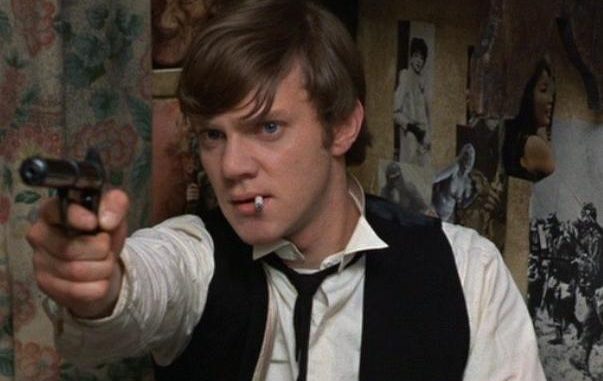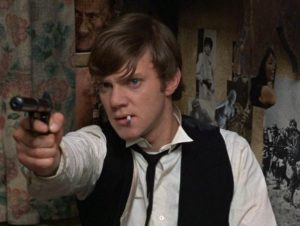
Kate Koenig, Editor-in-Chief
Here I am talking to you about movies again—but I’m no authority on the subject, I just enjoy sharing what I love.
I’d like you all for a moment to take a step back and think about the stages of making a motion picture. In a moment, or a series of moments, a person feels motivated with such creative strength and vision that they decide to turn it into a fully fleshed out story. This becomes a full-length description of events that builds a tale and its framework, similar to a novel but with more dialogue and direction. A few hundred people are hired (if there’s the budget), words become action, action becomes recorded, recordings become edited and distributed—I’m grossly over-simplifying the process, surely (and don’t call me Shirley)—and then suddenly it’s decades later, and this “motion picture” is regarded as a cornerstone of culture.
Something originally a product of incredible artistic momentum somehow becomes a collection of expression for a society, for a people, and is pored over and studied until the meaning of practically each frame is scrutinized. One piece of video-recording artwork is put on a pedestal and respected and admired by people everywhere. Yes, this tends to happen with music also, but it’s arguable which one holds more weight and influence. (They could just be equal in that sense.)
And sure, we’ve developed methods of analysis and approach, and we’ve delved into the psychological aspects and symbolism, literary resonance and overall significance behind the medium. We’ve found ways to break it down and pick it apart scene by scene, shot by shot, ways of looking into the thought processes of the director and reading the subtext that lies beneath camera perspective as well as script.
But no matter how much the human mind is capable of analyzing, I hope that I always have a sense of amazement towards the phenomenon. Meaning, the phenomenon of what movies that have been acclaimed for decades mean to a society, or how they end up becoming a cultural cornerstone. Maybe it’s more straightforward than I imagine, but I feel as though the influence of moving images (to put it simply) is profound.
Anyway, I thought I might recommend a movie to you this week called “if…” from 1968. It’s an English film starring Malcolm McDowell, who played the memorable role of Alex in “A Clockwork Orange” (1971). That movie was directed by Stanley Kubrick and based on a novel by Anthony Burgess, and has been a huge cult favorite ever since it came out, making Malcolm McDowell free to do a ton of voice-acting after its success.
“if…,” which notably came out before “A Clockwork Orange” in McDowell’s career, is set in an English boarding school. The main character endures various overwhelming difficulties (not quite like the extreme dehumanization in “The Wall”) and ends up involved in some wild adventures. The film ends with somewhat unexpected and extreme violence that followed along with the counter-culture uprisings of the decade, making it controversial in many aspects. But it’s definitely a wild ride and worth experiencing.
So that’s all I had to say in regards to the movie; I don’t necessarily support its counter-culture attitude but I certainly do its strangeness. Thanks for taking a moment to read, and I hope you all enjoy the upcoming break!
Leave a Reply